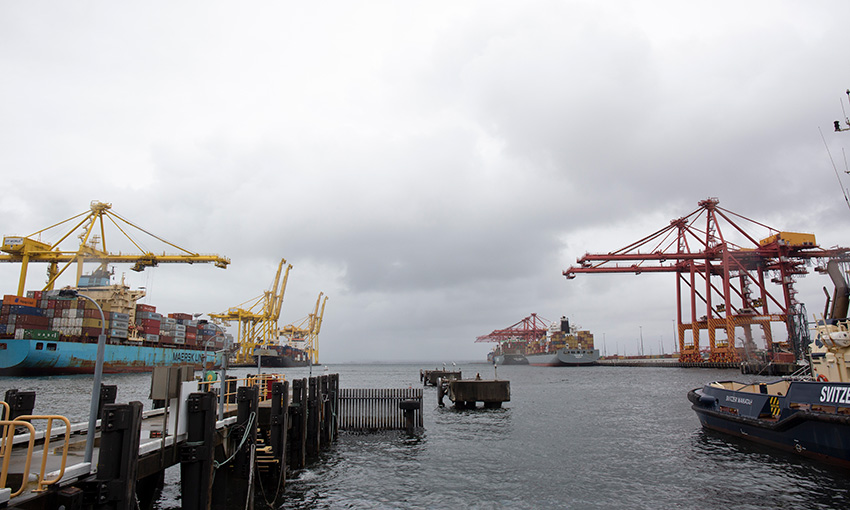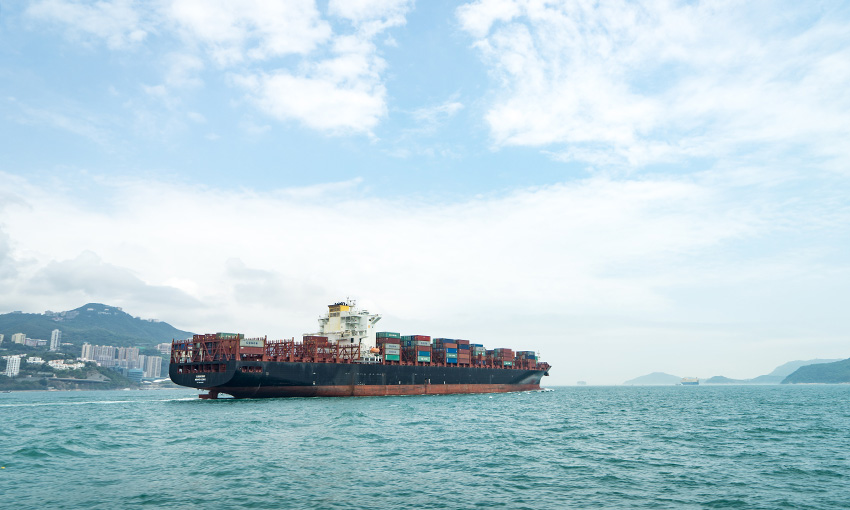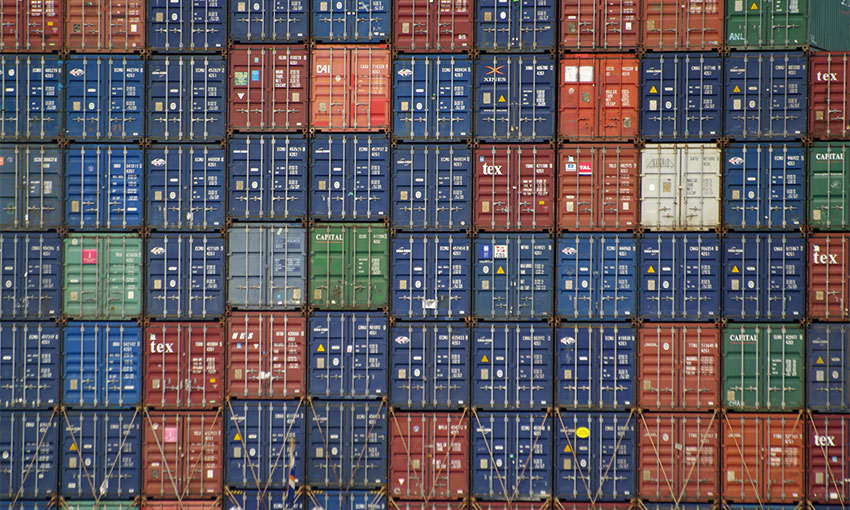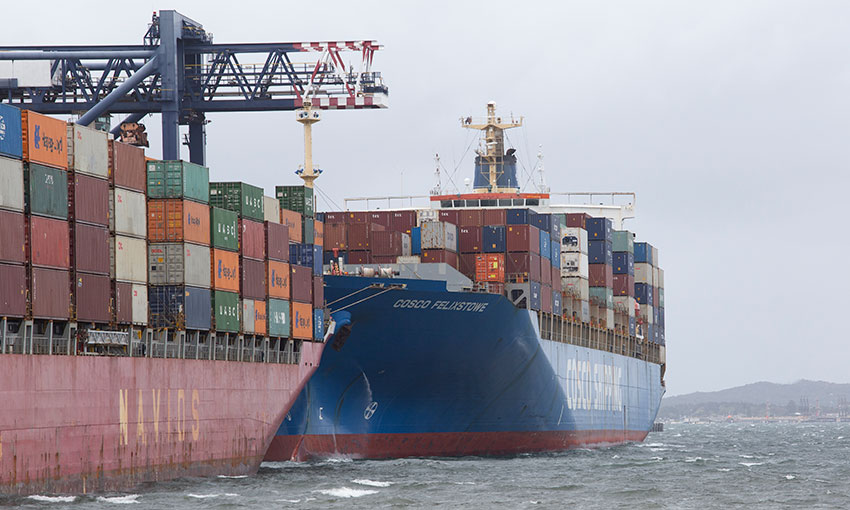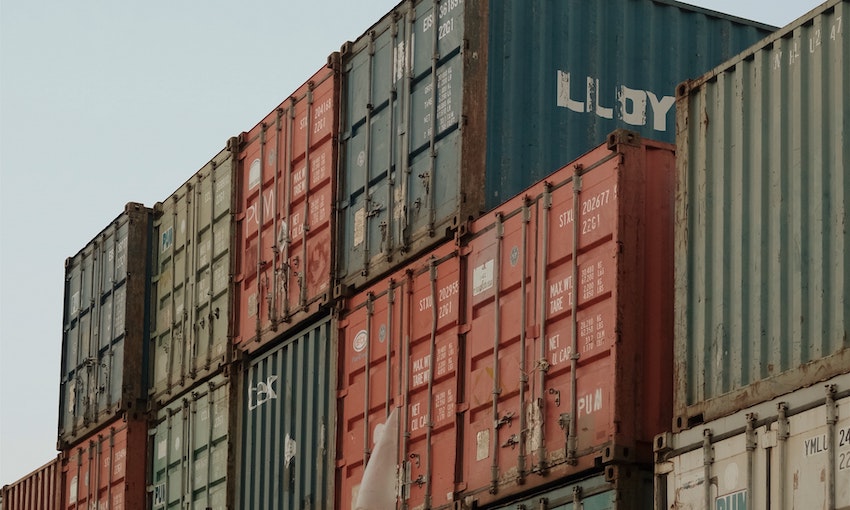THE OPERATING profit margin of Australia’s container stevedoring industry has increased by 14% since the start of the Covid-19 pandemic, according to the Container Stevedore Monitoring Report 2021-22, released by the Australian Competition and Consumer Commission on 12 December.
The stevedores’ profit margin is at the highest level since before the Patrick and DP World Australia duopoly ended nearly a decade ago.

The report shows the industry operating profit margin of Australia’s five stevedores was 24% in 2021-22, up from 10% in 2019-20.
Between 2000 and 2013, Patrick and DP World (Sydney, Melbourne, Fremantle and Brisbane), and the Adelaide Container Terminal collectively achieved operating profits of between 21 and 27%; however, competition from Hutchison and VICT, combined with large infrastructure investments and other developments, led to their margins declining over the following seven years.
“Importers and exporters benefited from an injection of new competition at our largest ports several years ago, but we’re concerned that in the past few years those gains have been eroded to the detriment of importers and exporters, and, ultimately, Australian consumers,” ACCC Commissioner Anna Brakey said.
The ACCC has not yet formed a conclusive view on the drivers behind the recent increases in stevedores’ operating profits. Severely constrained global shipping capacity throughout the pandemic made it harder for importers and exporters to change to a different shipping service, and by implication a different stevedore, which may have weakened price competition between stevedores.
“If stevedores’ higher profits are due to the recent shocks to the global container freight supply chain, we’d expect their profits to decline over time as shipping and terminal congestion eases,” Ms Brakey said.
“We’ll be closely scrutinising the stevedores’ charges and financial performance in the coming years to see if there are any structural or behavioural factors sustaining higher profits, and whether any further policy or regulatory responses are warranted.”
State of the container freight supply chain
The report said Covid-19 continued to cause significant congestion and delays in the container freight supply chain in the 2021-22 financial year, although global shipping schedule reliability has improved in the second half of this year.
Schedule reliability at Australia’s container ports is influenced by the reliability of global shipping schedules as congestion and delays overseas can delay arrival at other ports along a given route.
A stevedore told the ACCC that as few as 10% of ships arrived within two hours of their designated berthing window in 2021-22, but that figure had improved to between 30-40% in recent months.
“Ongoing congestion in global supply chains means it’s still harder to move containers than it was pre-pandemic, but the situation has improved considerably this year,” Ms Brakey said.
The ACCC has also heard that unreliable shipping schedules have caused vessel bunching at Australian ports, resulting in large peaks and troughs for stevedores’ container handling.
Between 2019-20 and 2021-22, the net ship rate – a measure of the number of containers moved on or off a ship in an hour – at Australia’s container ports fell by 18%, at least partly due to vessel bunching.
“Less reliable shipping schedules, an increase in the size of ships visiting our container ports, and labour shortages across the whole supply chain have all impacted the efficiency of stevedores’ operations,” Ms Brakey said.
Freight rates fall
The recent slowdown in global trade has put downward pressure on global freight spot rates, which in November this year fell below US$2000 per 40-foot container according to the Platts Container Index produced by S&P Global Commodity Insights. However, this is still roughly double the average rate in 2019.
Global freight spot rates peaked in September 2021 at nearly US$8000 but fell to about US$5000 by the end of June 2022.
Elevated freight rates and generally higher costs for importers to use the supply chain have contributed to higher prices for Australian consumers and have put upward pressure on inflation.
“There is currently a high degree of economic uncertainty globally, but if there’s a reduction in global trade next year as industry analysts are predicting, it should ease pressure on supply chains and freight rates even further,” Ms Brakey said.
Privatised ports are not adequately regulated
The ACCC believes that the regulation of Australia’s monopoly container ports is ineffective, and the threat of further regulation in most states is not sufficiently credible.
The commission said there is currently the potential for the exercise of market power to exist undetected due to the inadequate level of regulatory scrutiny.
The report says that, at a minimum, Australia’s privatised container ports (Brisbane, Sydney, Melbourne, Adelaide) should be subject to greater regulatory oversight.
The ACCC said the Port of Melbourne is subject to more rigorous regulation than other privatised container ports. However, the Essential Services Commission of Victoria has found that the port has exercised its market power to set land rents and demonstrated non-compliance with its regulatory pricing requirements.
“Despite the significant nature of these findings, there has not been any material escalation in the level of regulation,” the ACCC report authors wrote.
“The regulatory oversight at other container ports does not appear to be sufficient to enable state regulators to proactively identify the exercise of market power. This is most pronounced at the Port of Brisbane, which does not appear to be subject to any active regulatory oversight,” the authors wrote.
“There is high potential for exercises of market power to go undetected if a regulatory regime is not designed to proactively identify and investigate them. If state regulators are not actively assessing whether ports are exercising market power, state governments cannot determine whether current regulation is adequate, and so the threat of further regulation lacks credibility.”
Part X
The ACCC supports the recommendations in the Productivity Commission’s recent draft report on Australia’s container ports to repeal Part X of the Competition and Consumer Act to encourage greater competition between shipping companies on Australian trade routes, address industrial relations issues, and develop benchmarks to measure the productivity of Australia’s container ports.
“Container shipping is critical to a trade-exposed economy like Australia. A well-functioning and more efficient supply chain would benefit all Australian businesses and consumers,” Ms Brakey said.
Container detention fees “unreasonable”
The ACCC said in circumstances where no level of detention fees can incentivise the cargo owner to return the container on the due date, the levying of the detention fees is unreasonable.
Some cargo owners told the commission the amount paid to shipping lines in detention fees had increased considerably in 2021-22.
“One cargo owner reported that the number of shipments incurring detention had almost doubled between 2018-19 and 2021-22, and that their total detention fees paid increased from approximately $150,000 in 2018-19 to nearly $1 million in 2021-22,” the report authors wrote.
In many instances, the commission said, higher detention fees had been caused by delays in returning empties due to a range of Covid-related congestion and logistics issues across the supply chain.
“Cargo owners and transport operators have informed the ACCC that, on many occasions, the delays occurred due to some action or inaction on the part of the shipping line,” the report’s authors wrote.
“Most commonly this is where a shipping line has failed to make appropriate arrangements for the de-hire of an empty container or has delayed the loading of export cargo due to its own scheduling issues.”

